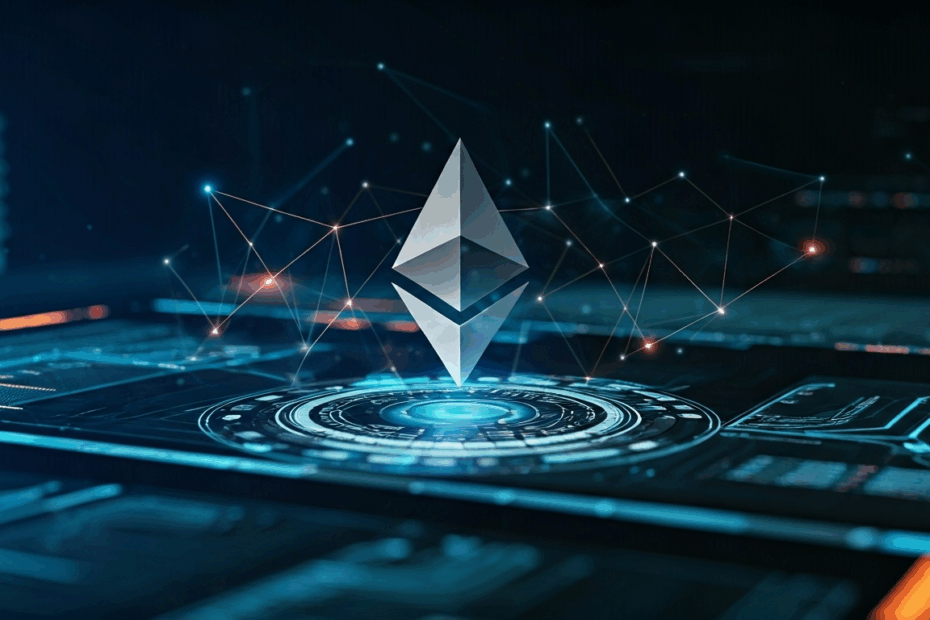Fusaka Upgrade To Undergo Rigorous Testing In New Ethereum Foundation-Backed Audit Contest
John: Hey everyone, I’m John, your go-to tech blogger at Blockchain Bulletin, where I break down the latest in Web3, metaverse, and blockchain. Today, we’re diving into the Fusaka upgrade for Ethereum and the new audit contest backed by the Ethereum Foundation—it’s all about making sure this major network update is secure before it goes live. If you’d like a simple starter guide to exchanges, take a look at this beginner-friendly overview.
Lila: That sounds exciting, John! I’ve heard readers are buzzing about Ethereum upgrades, but what exactly is this Fusaka thing, and why the big audit contest now?
What is the Fusaka Upgrade?
John: Great question, Lila. The Fusaka upgrade is Ethereum’s next major hard fork, planned for the mainnet in Q4 2025. In the past, Ethereum has had upgrades like Dencun to improve scalability, and Fusaka builds on that by focusing on security enhancements and higher throughput for layer-2 networks.
Lila: Hard fork? What’s that in simple terms?
John: A hard fork is a significant change to the Ethereum protocol that requires all nodes to update—it’s like updating your phone’s OS to get new features (but everyone on the network has to do it to stay compatible). Currently, Fusaka includes several Ethereum Improvement Proposals (EIPs) aimed at boosting efficiency, such as expanding data capacity for rollups by up to 10 times, based on recent developer discussions.
Lila: Okay, got it. So, how does this tie into the audit contest?
Details of the Audit Contest
John: The Ethereum Foundation launched this contest on 2025-09-15, offering a total prize pool of $2 million. It’s run in collaboration with Sherlock, a smart contract auditing platform, and sponsored by projects like Gnosis and Lido. The goal is to have security researchers worldwide hunt for bugs in the Fusaka code over four weeks.
Lila: Wow, $2 million is a lot! What kind of testing is involved?
John: It’s a competitive audit where participants submit findings on vulnerabilities in the execution layer (EL) and consensus layer (CL) clients. Early submissions get bonuses—like double points in the first week and 1.5 times in the second—to encourage quick reports. This rigorous testing happens before the mainnet launch to catch issues early.
Lila: That makes sense for safety. Are there any specific rules or focuses?
John: Yes, the contest emphasizes clear, high-quality reports to help developers fix problems efficiently. For example, it’s not just about finding bugs but explaining them well. Remember, compliance with local laws varies by jurisdiction when participating in such contests—always check official guidelines from the Ethereum Foundation.
Timeline and Recent Developments
Lila: Let’s talk timing. When did this all start, and what’s next?
John: In the past, Ethereum devs agreed on the Fusaka scope during meetings like ACDE #214 in June 2025, adding four new EIPs. Currently, as of 2025-09-17, the contest is underway, running until mid-October 2025, with Devnet-5 testing in progress. Looking ahead, public testnets are expected later in September 2025, leading to the mainnet fork by year-end.
Lila: Devnet-5? Break that down for me.
John: Devnets are developer test networks—think of them as sandboxes where changes are tested without affecting real users (like a beta version of software). This contest is scrutinizing the code on Devnet-5 to ensure it’s robust before wider rollout.
Why This Matters for Ethereum Users
John: This audit is crucial because Ethereum powers a huge ecosystem, from DeFi to NFTs. By identifying vulnerabilities now, it reduces risks like hacks or downtime, which have hit other networks in the past. For instance, past upgrades have improved gas fees and speed, and Fusaka aims to do the same by enhancing smart contract security.
Lila: Any practical tips for readers interested in this?
John: Absolutely. If you’re a developer or researcher, here’s a quick list of ways to get involved safely:
- Review the official contest rules on Sherlock’s site before submitting.
- Focus on high-impact areas like client interactions for better rewards.
- Avoid sharing unverified findings publicly to prevent exploits.
- Stay updated via Ethereum Foundation channels for any changes.
John: And a light aside: It’s like a treasure hunt, but instead of gold, you’re digging for code bugs—way more valuable for the network!
Lila: Haha, good one! What about risks or safeguards?
John: Risks include potential delays if major issues are found, but safeguards like this contest minimize them. Always verify info from trusted sources, as blockchain tech evolves quickly.
Looking Ahead: What’s Next for Fusaka?
Lila: So, wrapping up, what’s on the horizon?
John: Looking ahead, after the contest ends around 2025-10-13, findings will be addressed, paving the way for testnet upgrades in late September 2025. The mainnet activation is targeted for Q4 2025, potentially November, based on developer agreements. This could boost Ethereum’s performance, making it more appealing for builders and users.
Lila: Any final thoughts on how this fits into the bigger picture?
John: It’s a step toward a more secure and scalable Ethereum, building on years of community effort. Exciting times ahead—stay tuned for updates. And if you’d like a bit more background on exchanges, you might enjoy this global guide.
Lila: Thanks, John! Key takeaway: The Fusaka audit is all about proactive security to make Ethereum stronger for everyone.
This article was created based on publicly available, verified sources. References:
- Original Source
- Ethereum devs open Fusaka upgrade to $2 million security audit contest | The Block
- Ethereum puts Fusaka code under Sherlock’s magnifying glass – Blockworks
- Ethereum Foundation launches $2M security contest for Fusaka upgrade
